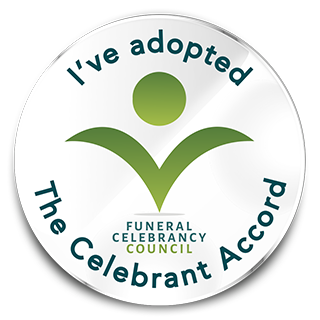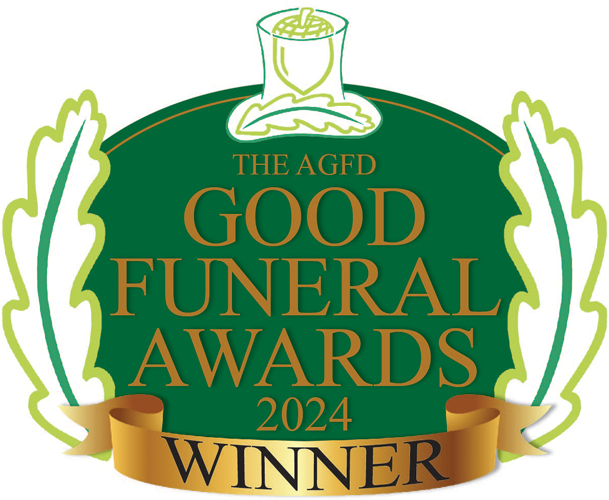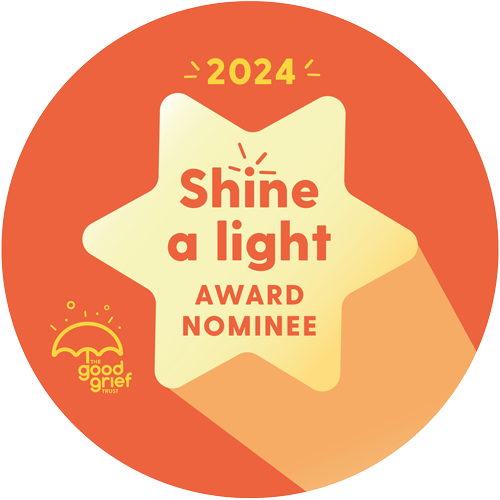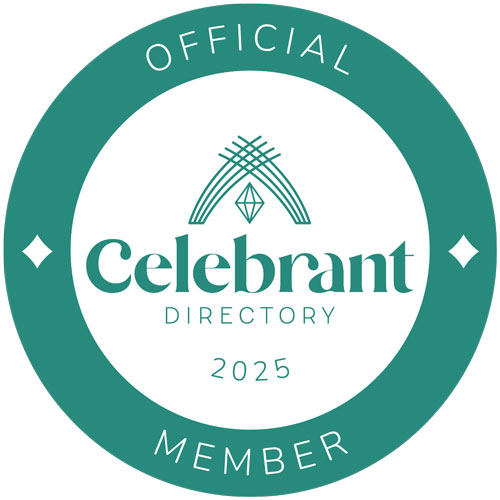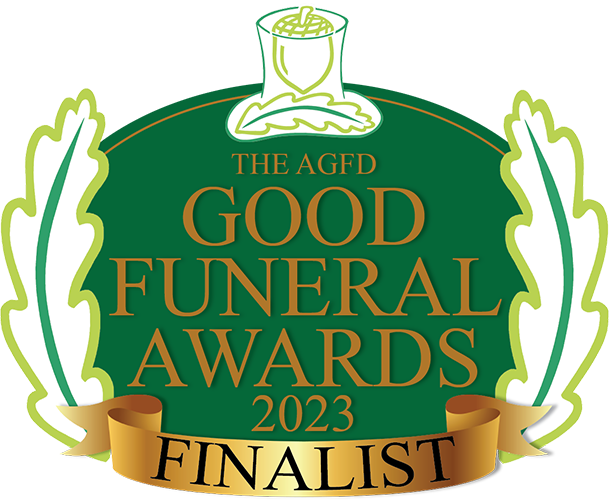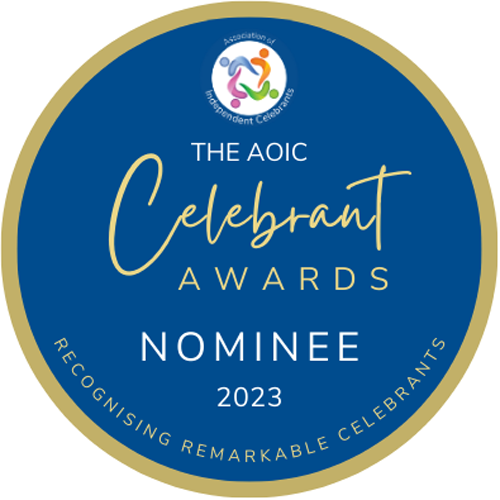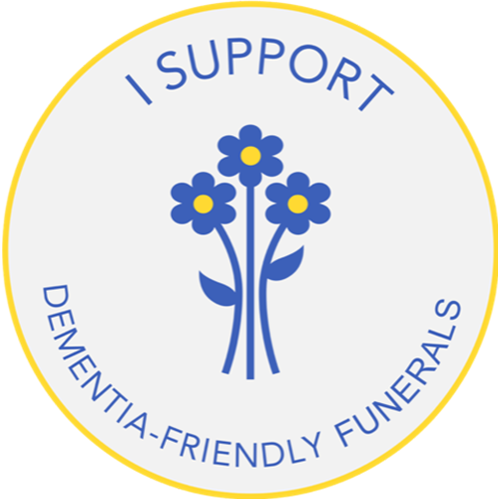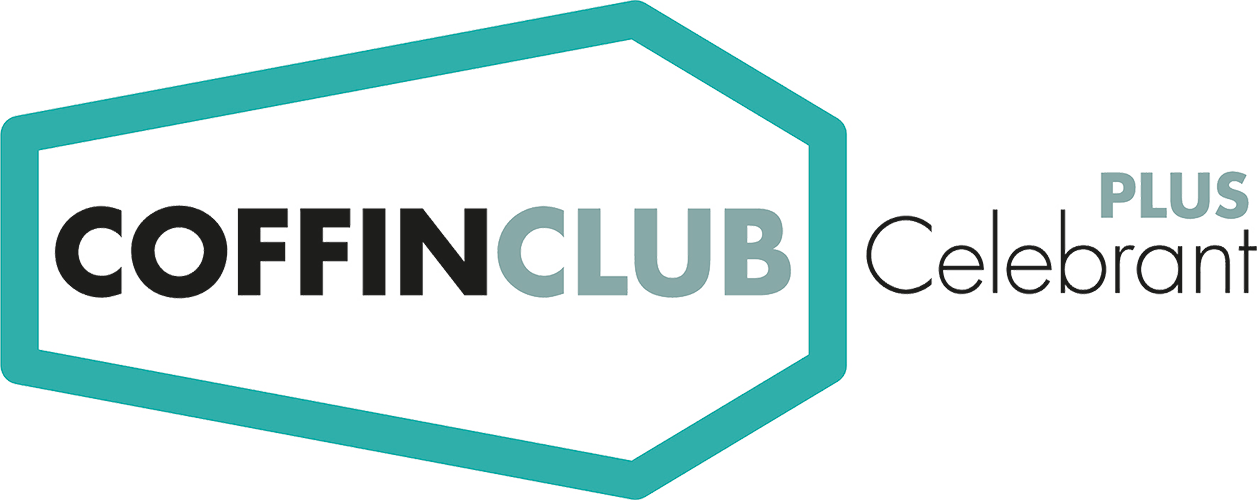Guidance
Planning a funeral for yourself or someone that you love can be a hard thing to do, particularly if you’ve never planned a funeral before. It can take some time to familiarise yourself with the options. I have put together some guidance below that may help, along with an FAQ section which follows.
Planning a Funeral
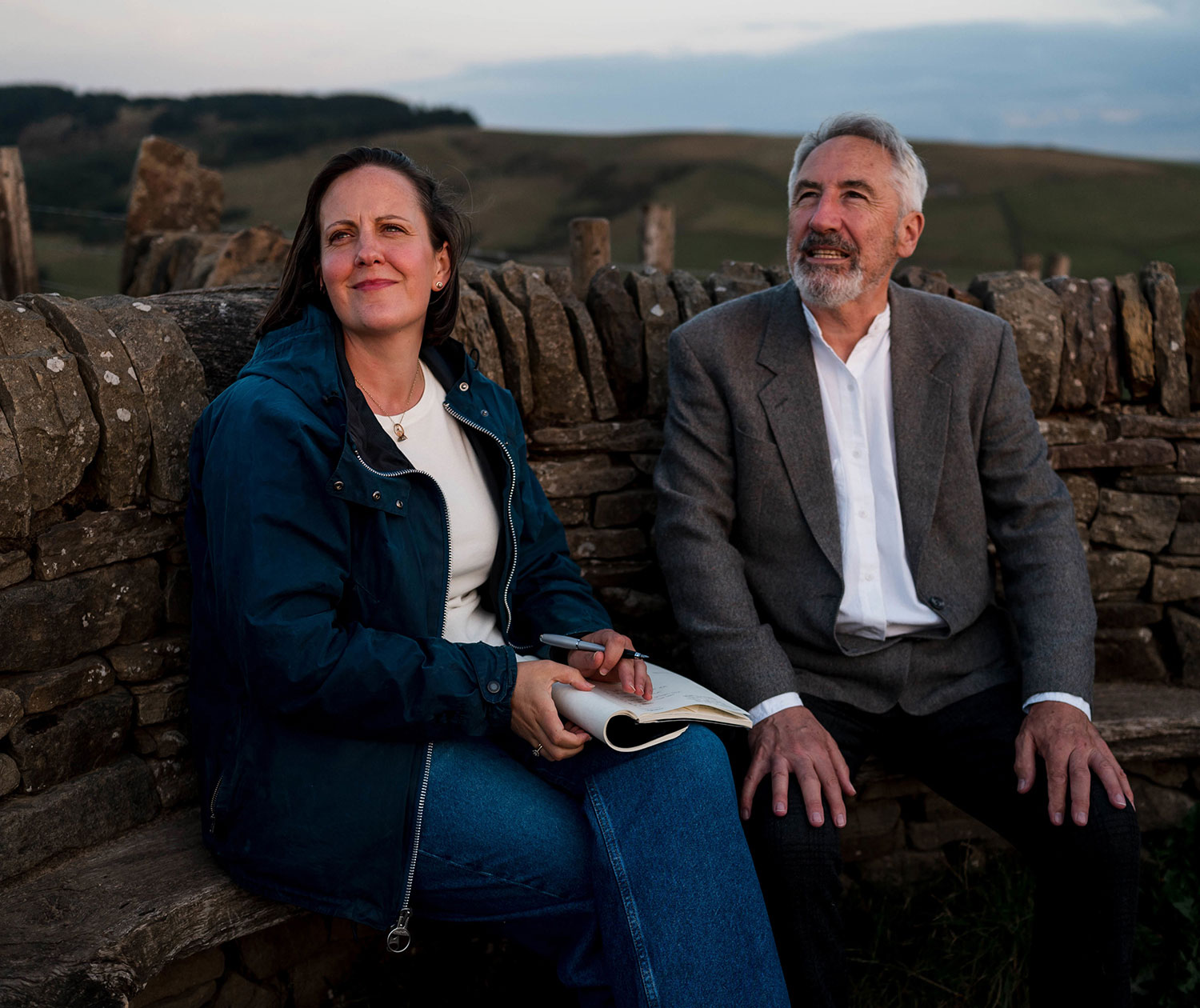
What’s important to remember throughout the funeral planning process is that there are options, choices and a wealth of kind, informed and experienced people to help you. You don’t have to do anything a ‘certain’ nor ‘traditional’ way, if you don’t want to — take your time to find a funeral director and/or celebrant who supports you in exploring what a funeral can be.
Funerals can be held at a crematorium, natural burial ground, chapel, religious building or cemetery, or at a different venue. This might be someone's home or garden, a private venue (such as a hotel, wedding venue, school hall, community centre, theatre, historic building or stately home) or at a natural outdoor space such as a beach, hillside, or woodland (with the landowner’s permission).
There are many options for coffins (including natural biodegradable materials such as willow, fabric or wool shrouds, wood, and cardboard), hearses/vehicles, urns, flowers and of course, what everyone wears. Take your time to explore these options and ask for help from your funeral director and/or celebrant if you need it.
A funeral ceremony can be led by a celebrant, clergy, a religious leader, or it can be led by you (plus family and friends too) if you feel able. There is no legal requirement for someone else to lead the ceremony for you. Some celebrants are independent (or civil) and others are Humanist. I am an independent celebrant. This means that I am able to create funeral ceremonies that are crafted in a way that touches on many aspects of a person’s life — their loves, their religious or spiritual beliefs (if they have or had them) and/or culture, their passions, their personality. I believe in something ‘greater than ourselves’, though I don’t belong to any one religion. You could think of me as the middle ground between clergy/a religious leader and a Humanist celebrant, in celebrant terms.
If you would like a celebrant to plan and lead the funeral ceremony, the funeral director that you work with (if you are working with one) will typically recommend someone local whom they feel is best suited. You can of course also research local celebrants yourself and get in touch with them directly. The Celebrant Directory and Funeralcelebrants.org are a good place to start. Throughout the ceremony planning process, a celebrant will communicate with the funeral director to ensure smooth lines of communication.
When planning and creating a funeral or memorial it’s important to ensure that the appropriate and/or necessary amount of time and space is given to the ceremony itself. I realise that this is sometimes determined by cost (and also planning time), but, for example, if you feel that the standard time period at a crematorium may not be long enough, do discuss this with your funeral director or celebrant to see if there are any alternative options available.
In terms of the ceremony itself, there is no right or wrong thing to do. Seating arrangements can be formal — in rows, or informal — in a circle or horseshoe. You may like to include traditional or contemporary rituals or elements pertaining to personal, religious or spiritual beliefs such as readings, prayers, meditation or the lighting of candles. There could be live music or other artistic contributions perhaps involving children, or there could be periods of silence. It is possible to hold joy as well as sadness during this time.
When someone dies, there are several options relating to burial or cremation which, in turn, affect where, when and how a ceremony is held. A person can be cremated ‘without’ a service, or, at least, without a service that takes place at the same place and time as cremation — this is known as ‘Direct’ or ‘Unattended’ Cremation. However, in this instance, a separate ceremony can still take place at a different location, on a different day (see Ceremonies page for guidance).
If a person is cremated and you then receive their ashes, there are several things to consider in terms of what to do next. They can be kept with you at home, they can be scattered somewhere special or significant, or they can be placed or buried within a permanent place, known as interment. For each of these options, you may like to consider a ceremony with a funeral celebrant who can guide the process. If you have received ashes following Direct or Unattended Cremation, you may then like to hold funeral, memorial or Celebration of Life ceremony, with the urn present during the service, if you would like to.
Planning ahead
One of the surest aspects to life is that we will all die. After death, your funeral is an important time, particularly for the living who will grieve your absence. You might have had the odd conversation over dinner about whether or not you’d like to be cremated or buried, but often these wishes aren’t recorded (nor remembered), plus there is so much more to think about.
Making plans for our own funeral and talking about death with the people that you love can seem at first like an odd thing to do, but it is actually incredibly freeing and can help you to live more fully. It can help you to be sure that, if you were to die, those around you would have a roadmap to follow.
Most of us do not know when we will die and therefore it can be hard to know when to do this kind of work, but my advice is — start now — and then review it every 3-5 years. If you know that you will die soon, due to a terminal illness, a life-limiting health condition, or having reached a very old age, now is a really good time to learn more about your options and make some decisions.
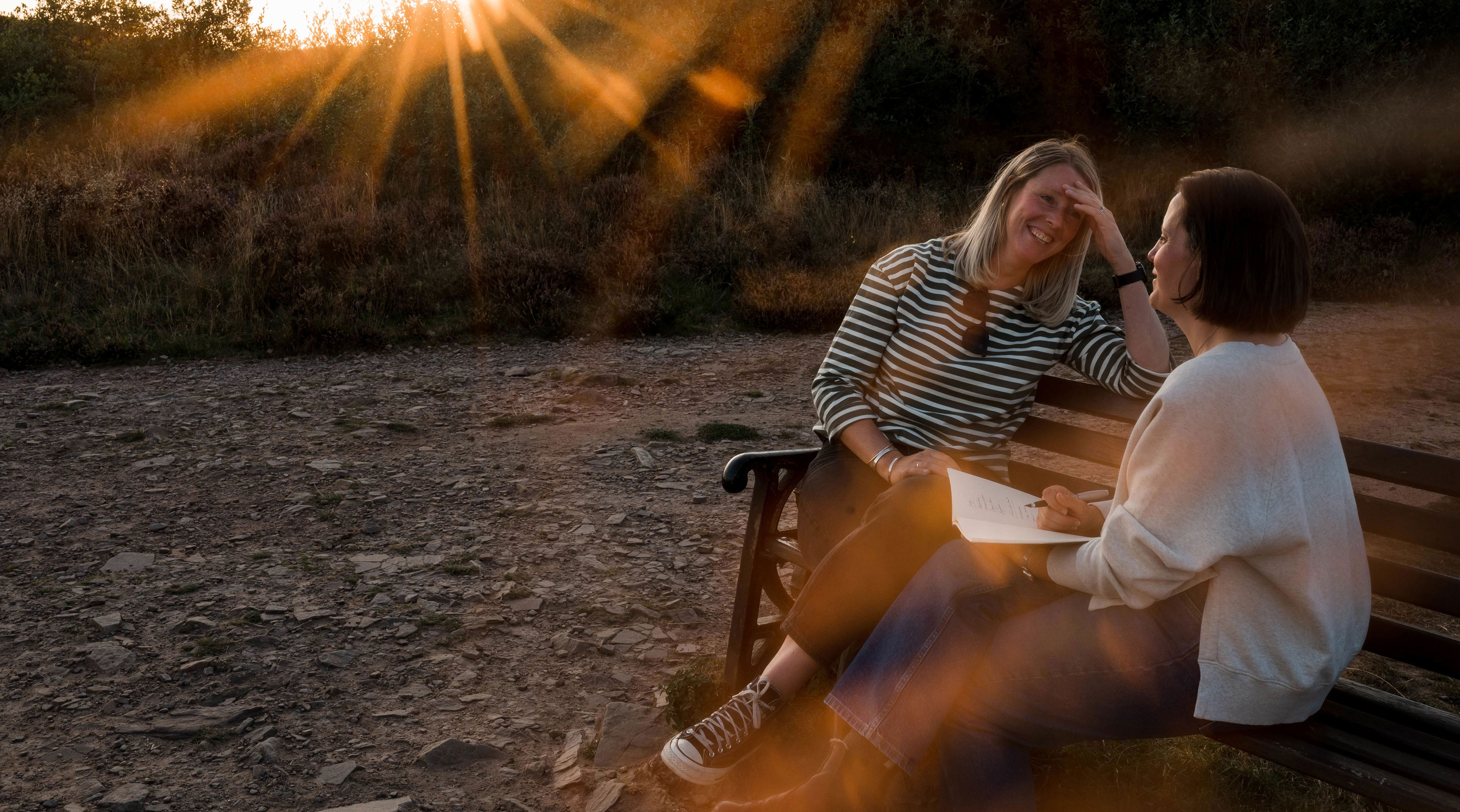
Faqs
What should I do when someone dies?
Progressive funeral directors, Poetic Endings, based in London, have compiled an excellent, informative guide on what to do when someone dies. You can read it here.
What is direct cremation?
Direct cremation is where a person is cremated either without, or before, a funeral ceremony or event has taken place. There are some benefits to this option in that a family then have more time to plan a funeral, Celebration of Life or memorial, which can, of course, then include the person’s ashes within an urn. A funeral ceremony or event can also be held before Direct Cremation, without the person's ashes (nor their body/coffin) present. It is often seen as a more affordable option, though it’s worth considering what the physical presence of a person’s body and coffin within the funeral space means to you, as well as whether or not you would like to see someone again after they have died, before cremation, as this is generally not an option.
What is a a living funeral?
If you know that you will die, either from a terminal illness or a life-limiting health condition, or maybe you are of a very old age where you know you will die ‘soon’, you may like to consider a living funeral. This means having the opportunity to celebrate and/or mark your life with those that love and care for you whilst you are still alive. You can choose when, where and how a living funeral takes place, along with who is there. You can lead or contribute to the ceremony yourself, if you would like to, and/or others can contribute too. Living funerals can be incredibly joyous, full of love and laughter and a time to truly connect in a way that is very rare during our day-to-day lives. If you would like to watch an example of a living funeral, I recommend Grayson Perry’s Rites of Passage series on All 4. Episode 1 is about death and documents a living funeral beautifully.
What’s the difference between a Funeral and a Celebration of Life?
A Celebration of Life is simply a different ‘type’ of funeral. Funerals are traditionally thought of as relatively formal — but in fact, a funeral can be whatever you would like it to be. You could call it a celebration of life and still have elements of formality, or you could call it a funeral and still have elements of celebration. What matters is that you have the opportunity to create something that is right for the person who has died, and the people who surround them. A good funeral director and/or funeral celebrant will help you to do this.
What is a natural burial ground?
The Natural Death Centre have some excellent resources on their website to help you to research and understand more about natural death and natural burial. Here is the link.
Can you have a funeral after direct cremation?
Yes, you can. You can, of course, also include the person’s ashes within an urn in the ceremony too. This option means that you have plenty of time to plan, which can be invaluable. You can have a funeral, a memorial service, a Celebration of Life, a time of silence in a woodland, a special dinner — the options are limitless and can be entirely tailored to the person who has died, and the hopes of those close to them.
What is a Funeral Celebrant?
A funeral celebrant can create funeral ceremonies that are individual — crafted in a way that touches on many aspects of a person’s story. An Independent Celebrant can include their loves, their religious or spiritual beliefs (if they have or had them) and/or culture, their passions, their personality. A Humanist celebrant will do this too, minus the religious element. A ceremony can also be reflective of and include specific people and communities that surround them. What’s important is that you work with someone who feels like a good fit for you and your family. If you are not sure, look again at the options local to you and/or speak to your funeral director. The Celebrant Directory and Funeralcelebrants.org are a good place to start.
Funeral Venues in Cheshire, Manchester and the Peak District
Below is a list of funeral venues that you might wish to consider as you plan a funeral. In addition to these locations, funerals can also be held at someone’s home or garden, a private venue (such as a hotel, wedding venue, school hall, community centre, theatre, historic building or stately home) or at a natural outdoor space such as a beach, hillside, or woodland (with the landowner’s permission). There are many options, and there is choice for families. Do get in touch if you would like to discuss your plans and/or ideas.
Natural Burial Grounds in Cheshire
- Adlington Memorial Park, near Macclesfield
- Monument Meadow Natural Burial Ground, Chester
- Swanlow Park Cemetery, Winsford
- Friends of Nature Burial Ground, Knutsford
Natural Burial Grounds in Manchester
- Woodland Cemetery, Manchester
- Natural Burial Grounds in the Peak District
- Hope Woodland Cemetery, Hope Valley
Crematoriums in Cheshire
- Birches Remembrance Park & Crematorium
- Macclesfield Crematorium
- Chester Crematorium
- Vale Royal Crematorium
- Walton Lea Crematorium
- Widnes Crematorium
- Crewe Crematorium
Crematoriums in Manchester
- Altrincham Crematorium
- Stockport Crematorium
Crematoriums in the Peak District
There are no crematoriums within the Peak District itself. The nearest ones are to the west within Cheshire and Greater Manchester as listed above, to the east at Hutcliffe Wood Crematorium or Grenoside Crematorium, or to the south at Markeaton Crematorium, Trent Valley Crematorium, Bretby Crematorium or Lichfield & District Crematorium.

Community Events
Talking openly about death, dying, funerals and the options and planning associated with them can be hugely beneficial to both our home lives and communities. It can help us to feel more prepared ahead of time and can help those navigating grief and loss to feel better supported.
I run events and community talks throughout the year to help instigate and facilitate these conversations. Do join the conversation — it would be great to meet you.
When I have community events such as Death Cafes and Death Dinners coming up, I’ll list the details below.
Upcoming Events
2023
- TBC
Past Events
2023
- Community Talk for Macclesfield Samaritans, April 2023
- Community Talk at the NeuroMuscular Centre, May 2023
- Community Talk at the Bridgend Centre, Bollington, May 2023
- Funeral Feast – a Present Ascent X Feastable collaboration, September 2023
Local Suppliers
My work and home life are enriched every day by our local community in Macclesfield, Cheshire. It is a wonderful town, full of ambitious, talented people running inspirational businesses. If there are other things that you need as you look to plan a ceremony, I can wholly recommend the following people:
Flowers
- North & Flower
- Sarah Hinchliffe, Macclesfield
- northandflower.co.uk
Photography
- Folk & Tale
- Anna Hornby, Macclesfield
- annahornby.com
Food
- Feastable
- Charis Jones, Macclesfield
- feastable.co.uk
Urns
- Rachel Ho Ceramics
- Urn commissions, handmade in Macclesfield
- rachelho.co.uk
Coffins
- Wheatcroft Willow
- Rachel Evans, based in the heart of Staffordshire Moorlands
- wheatcroftwillow.co.uk
Estate Planning Solicitors
- Howell Griffiths
- Jennifer Howell, based in Northwich
- howellgriffiths.co.uk
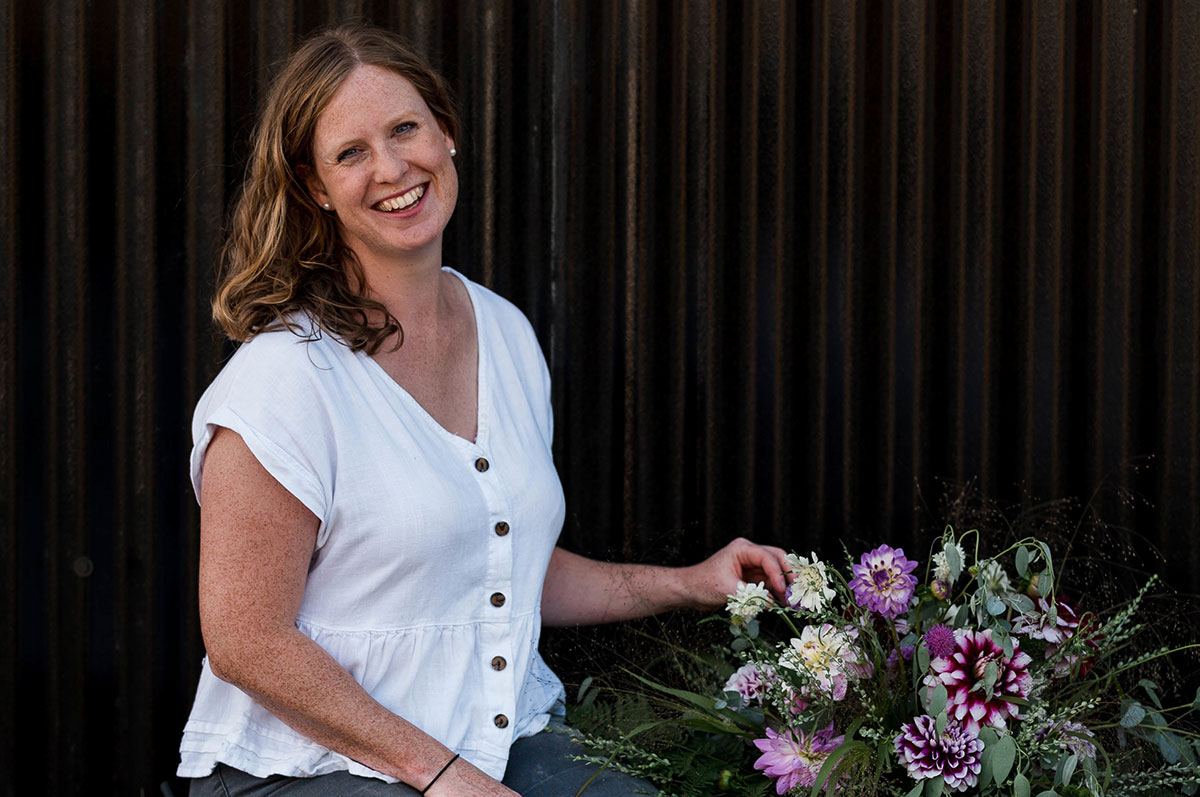
Sarah, North & Flower
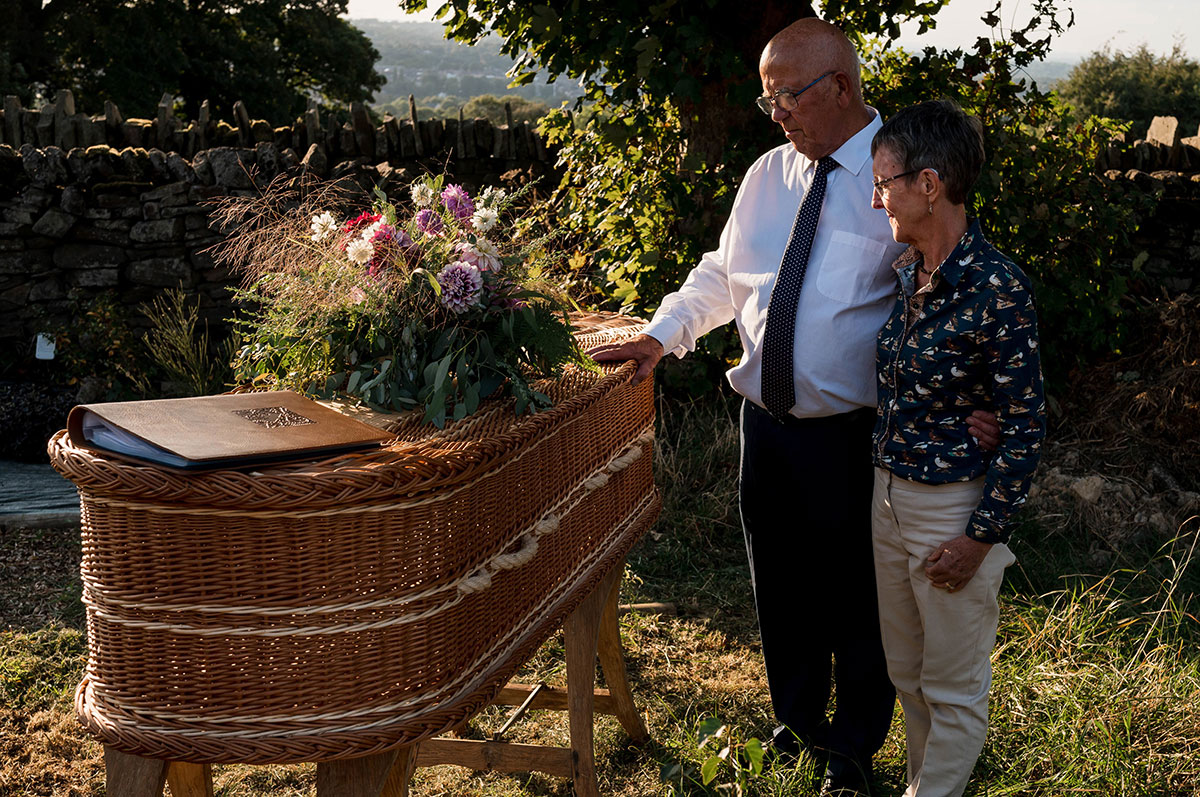
Coffin by Wheatcroft Willow
Resources
If you are interested in learning more about death, dying and funerals, the following resources are a wonderful place to start…
Books
- DO/ DEATH/ For a life better lived
- by Amanda Blainey
- We All Know How This Ends.
- by Anna Lyons & Louise Winter
- Funerals Your Way
- by Sarah Jones
- The Good Funeral Guide
- by Charles Cowling
Organisations
- Coffin Club
- The Good Funeral Guild
- Hospice UK / Dying Matters
- Whiteballoon
- The Good Grief Trust
- The Natural Death Society
Podcasts
- Griefcast
- Full Circle
- Doing Death
- Good Grief
- @lifedeathwhat
- @talkdeathdaily
- @thedeathdeck

Lucy is a beautiful and poignant writer who skilfully uses her words to speak to and comfort anyone who has known loss.



I am a member of the Good Funeral Guild, a collective of like-minded people working to change funerals for the better.


